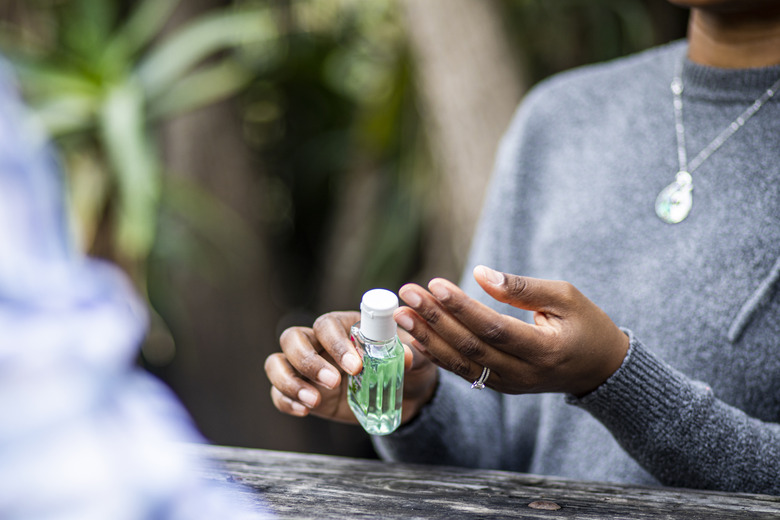How Does Hand Sanitizer Really Work?
Hand sanitizer has never had a bigger moment. As the COVID-19 pandemic continues to upend our lives, hand sanitizer has turned into an important part of slowing the spread and flattening the curve.
But in between the globs of hand sanitizer (if you can can get your hands on it, that is) you may be wondering ...
How Does Hand Sanitizer Even Work?
How Does Hand Sanitizer Even Work?
Alcohol-based hand sanitizer works by destroying the microbes that make up many bacterias and some viruses.
The main ingredient of these sanitizers is alcohol, usually ethanol (which is the same kind of alcohol you need if you're brewing a drink like beer or wine), isopropanol (often found in rubbing alcohol, though some formulas have ethanol in rubbing alcohols instead), or N-propanol. Additionally, different manufacturers add ingredients like water, fragrances or ingredients that keep the alcohol from drying out your hands.
It's the alcohol that does the job, though. When an alcohol-based sanitizer comes in contact with bacteria, a process called denaturation occurs. During denaturation, the alcohol unfolds and inactivates the important proteins and the outer coat of the bacteria. This process makes it impossible for the microbe to stay together, effectively rendering it useless, or killing it.
It's kind of like if you were wearing a coat to protect you on a cold day, but then you walked by a magical machine that made the coat quickly shred into a million pieces. The pieces would still technically be around you, but when they weren't held together by the threads that make them into a winter jacket, they wouldn't be able to protect you – or anything – from the cold. Like the bacteria when it comes in contact with sanitizer, it's rendered useless.
What About Viruses?
What About Viruses?
Since hand sanitizers are often called antibacterials, many people believe they're ineffective against viruses. That's not 100% true. But far more bacterias have that coat, which is usually referred to as an envelope, than viruses do.
There are enveloped viruses, though, and COVID-19 is one of them.
That means that hand sanitizers that have at least a 60% concentration of alcohol in them can be effective for at least fighting off some of the virus microbes that could be on your hands. You don't need to go higher than 95%, as the killing of germs seems to top out there. Look for the percentage of alcohol listed right on the bottle.
If you are trying to use a homemade sanitizer or one where you can't find the percentage of alcohol, do not rely on it to kill the virus.
And even if you've got one that's 60% or more, don't rely on hand sanitizer alone. The CDC recommends washing your hands with warm water and soap when possible, as it's the best at fighting off all kinds of germs and chemicals. That's especially the case if you're trying to use sanitizers to clean your hands in addition to sanitizing them.
"Many studies show that hand sanitizers work well in clinical settings like hospitals, where hands come into contact with germs but generally are not heavily soiled or greasy," says the CDC.
That means that if you've just gone outside to shoot some socially distant hoops in your driveway and come back inside with hands covered in grime, hand sanitizer alone likely isn't going to get rid of all that dirt. In that instance, wash your hands with warm water and soap for at least 20 seconds, and save the sanitizer for a boost when your hands aren't as dirty and greasy.
It's always important to practice this kind of sanitation, but now, it's literally a matter of life and death for people around the world. Wash your hands, use a 60% or higher hand sanitizer to supplement if possible and stay safe!
Cite This Article
MLA
Dragani, Rachelle. "How Does Hand Sanitizer Really Work?" sciencing.com, https://www.sciencing.com/how-does-hand-sanitizer-work-13725711/. 19 March 2020.
APA
Dragani, Rachelle. (2020, March 19). How Does Hand Sanitizer Really Work?. sciencing.com. Retrieved from https://www.sciencing.com/how-does-hand-sanitizer-work-13725711/
Chicago
Dragani, Rachelle. How Does Hand Sanitizer Really Work? last modified March 24, 2022. https://www.sciencing.com/how-does-hand-sanitizer-work-13725711/
